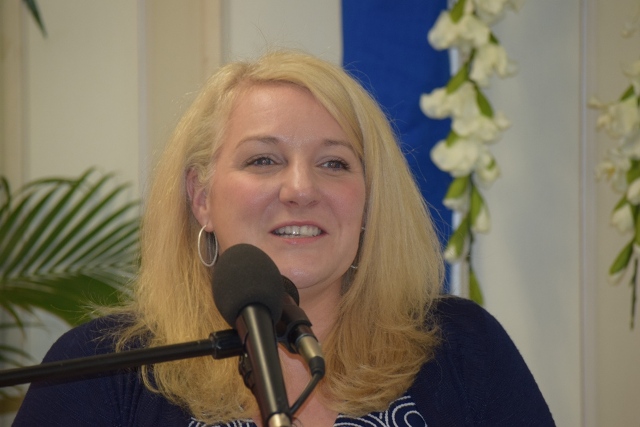Basseterre, St. Kitts, June 29, 2016 (SKNIS): The newest collaboration between the Clarence Fitzroy Bryant College (CFBC) and Dalhousie University in Canada has been described as a progressive move forged to create more leaders in society.
Speaking at the recent launch of the Agriculture Business Competency-based Programme at the CFBC, Suzanne Johnson, Manager of International Projects at Dalhousie University, said the communities in Canada where her institution is based and the Nova Scotia Community College, (both are in Nova Scotia) are very similar to the communities in St. Kitts and Nevis and that has helped to make the relationship “great.”
She stated that both parties, in St. Kitts-Nevis and in Canada, are committed to the successful growth of small regions that can assume a leadership role on the international level. “That is what has brought us together,” she said.
Ms. Johnson noted that the progamme development began in September 2013 and was designed to enhance labour market opportunities with an emphasis on youth. It however, has an adult component to ensure that older, experienced farmers and adult educators can be a part of it. Successful candidates become more employable with the new skills, thus making it easier for them to move through CARICOM (Caribbean Community) under the free market.
“I think the milestone of accomplishing the fact that we have established the first national vocational qualification for Agribusiness Management in the region is a fantastic accomplishment,” she added.
Various stakeholders have been engaged to ensure that the programme has the requisite support necessary. Over the past three years, capacity training has taken place. At CFBC alone, Ms. Johnson said that 65 staff and faculty have received training in project and financial management, labour market intelligence gathering, competency based education and training, environmental sustainability and entrepreneurship, occupational skills analysis, curriculum development and more. Over five members also spent time in Canada learning about student services, mainstreaming of crosscutting themes such as gender, environment and entrepreneurship, assessment and evaluation, social marketing etc.
The Dalhousie University representative said she was looking forward to attending the first graduation of cohorts in 2017 and reaffirmed that work will continue with local stakeholders to “increase food production, enhance food security, and improve the nutritional status of the population for a healthy nation.”





